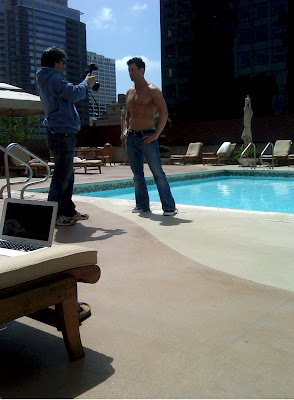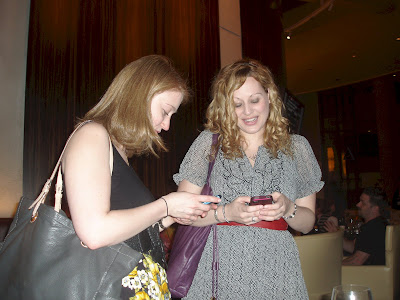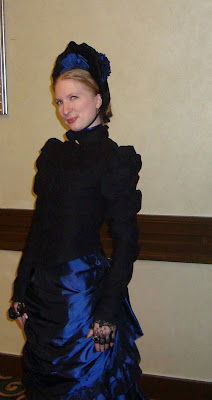 When I submitted my first novel to an agent, I spun this whole fantasy around it.
When I submitted my first novel to an agent, I spun this whole fantasy around it.
Yeah, you publishing types out there are rolling your eyes and you writers are cringing and nodding in sympathy.
You know the kind of fantasy I mean. The agent calls you up, all thrilled and excited to have discovered you. I’m embarrassed to admit, part of my little fantasy was that not only would they offer me a lovely advance, but that they’d ask me how much more I needed to quit my day job and write the sequel as fast as possible.
Yes, you can laugh now.
I wasn’t all that naive, either, relatively speaking. I’d had my essay collection published with a university press, which meant no advance, small print run. I’d published in magazines for ten years. I had a pretty decent idea how publishing worked.
This still did not prevent me from imagining they’d go into a frenzy, exclaiming “She’s the next Stephenie Meyer – we must pay this woman to write!”
It could happen…
At any rate, it didn’t. I got the polite thanks, but no thanks. David took me to the bar and bought me a margarita. Since then I’ve had more rejections and some maybes and some lovely yeses. But no one is begging me to quit my day job.
One of the things I’ve come to realize, in my newfound maturity, is that no one ever will.
At RT I noticed how many authors referenced their day jobs. Even award-winning, best-selling authors with name-recognition and sizzling cache. Courtney Milan, for example, still works full-time as a lawyer. A lot of us would like our books to be doing as well as hers. A number of other authors have a spouse who pulls in a decent salary, so the writing money is gravy on top of that.
The reality of it is, a day job provides a number of things that advances and even decent royalties do not. Things like health insurance, 401Ks, and a reliable salary. Advances are finite. You get a chunk of money and you might not get another for six months or a year. An author doing really well might get a $10,000, but if you compare that to half your annual salary at your day job, not counting benefits, it’s not so much. Royalties fluctuate and are impossible to predict. In order to rely on writing income, you have to have enough of an established backlist – books that keep selling more or less on their own at a steady rate.
I’m obviously not the first person to point that out. But it recently occurred to me that this is much like the scenario laid out by people like Robert Kiyosaki of Rich Dad, Poor Dad fame. You gradually build your passive income – money from investments that pay out without you having to actively work on them, e.g., already published books vs. writing new books – until you reach a level of comfort. For many of us, this level of comfort includes being able to pay for health insurance and save for the future.
It’s back to the whole “slow and steady wins the race thing.” It’s not the glamorous fantasy, no. It’s good to have those dreams, I think. They keep us revved and excited. It’s also good to recognize the reality, and plan accordingly.
Wait! Is that the phone?














 Jane Litte at
Jane Litte at 










